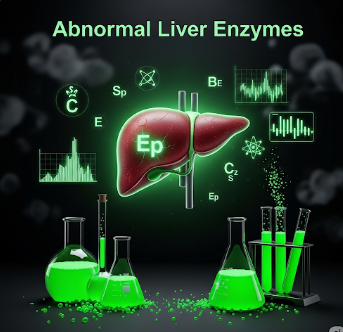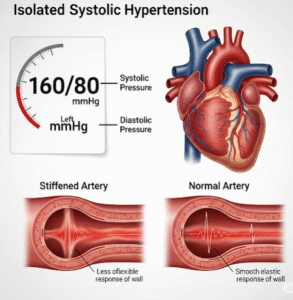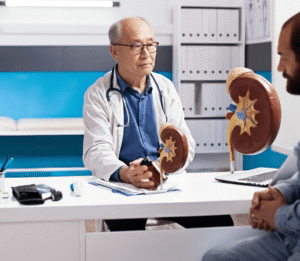Overview
Abnormal liver enzymes are a common finding during routine blood tests. The liver plays a vital role in filtering toxins, aiding digestion, and regulating energy. When the liver is stressed, injured, or diseased, it releases higher-than-normal levels of enzymes into the bloodstream. These elevated or abnormal results often serve as an early warning sign, sometimes before noticeable symptoms appear.
In South Korea, world-class hospitals and medical centers offer advanced diagnostics and treatments for liver-related conditions. Patients benefit from high-precision imaging, specialized hepatology clinics, and innovative therapies, making Korea a trusted destination for international medical travelers.
Key Facts
Highlights:
➡️ Abnormal liver enzymes are often discovered in routine check-ups, even if the patient feels healthy.
➡️ The key enzymes measured include ALT, AST, ALP, and GGT.
➡️ Elevated enzymes may result from lifestyle factors, medications, infections, or chronic conditions.
➡️ Many people show no symptoms despite abnormal results.
➡️ Korean hospitals provide advanced testing, early diagnosis, and top-tier liver care.
What is Abnormal Liver Enzymes?
Abnormal liver enzymes describe elevated or decreased levels of proteins released into the blood by liver cells. Doctors commonly check:
- ALT (Alanine aminotransferase): A specific marker of liver injury.
- AST (Aspartate aminotransferase): Found in the liver, heart, and muscles; may rise from liver or muscle damage.
- ALP (Alkaline phosphatase): Elevated when bile ducts are blocked or with gallbladder disease.
- GGT (Gamma-glutamyl transferase): Sensitive to alcohol use and bile duct issues.
Abnormal values don’t always mean severe disease but do signal that further evaluation is necessary.
What Symptoms are Related to Abnormal Liver Enzymes?
Many patients with abnormal liver enzymes have no symptoms at all. However, when symptoms appear, they may include:
- Fatigue or weakness
- Poor appetite
- Nausea or vomiting
- Pain in the upper right abdomen
- Jaundice (yellowing of skin/eyes)
- Dark-colored urine
- Pale or clay-colored stools
- Swelling in legs or abdomen (in advanced liver disease)
What Causes / Possible Causes of Abnormal Liver Enzymes?
Highlights:
➡️ Viral infections such as Hepatitis A, B, or C.
➡️ Non-alcoholic fatty liver disease (linked with obesity, diabetes, and high cholesterol).
➡️ Excessive alcohol use.
➡️ Medications and supplements (such as acetaminophen, statins, or certain antibiotics).
➡️ Gallbladder or bile duct problems (gallstones, blockages).
➡️ Autoimmune hepatitis (immune system attacking liver cells).
➡️ Advanced liver diseases such as cirrhosis or liver cancer.
When Should I See My Doctor?
Highlights:
➡️ If abnormal liver enzyme levels are found in a blood test, even without symptoms, medical follow-up is important.
➡️ Seek care if you develop jaundice, extreme fatigue, or unexplained abdominal pain.
➡️ Emergency evaluation is needed if abnormal results are accompanied by confusion, severe abdominal swelling, or unusual bleeding.
➡️ Those with risk factors such as obesity, diabetes, or heavy alcohol use should have regular monitoring.
Care and Treatment
Highlights:
➡️ Lifestyle changes: Avoid alcohol, eat a liver-friendly diet, and exercise regularly.
➡️ Weight management: Healthy weight loss can reduce fat in the liver and normalize enzymes.
➡️ Medication adjustments: Doctors may switch or stop drugs that contribute to liver stress.
➡️ Monitoring: Regular follow-up blood tests are key to tracking improvements or deterioration.
➡️ Dietary care: Reduce sugar, processed food, and unhealthy fats while increasing fruits, vegetables, and lean proteins.
In many cases, simple lifestyle changes can return enzyme levels to normal, especially when detected early.
Treatment Options in Korea
Highlights:
➡️ Accurate Diagnostics: Blood tests, advanced imaging (ultrasound, CT, MRI), and liver biopsies when required.
➡️ Specialized Hepatology Clinics: Hospitals in Korea have expert liver centers staffed by hepatologists.
➡️ Medical Treatments: Antiviral therapy for hepatitis, medications for autoimmune hepatitis, and lifestyle therapy for fatty liver.
➡️ Minimally Invasive Procedures: Endoscopic and laparoscopic techniques for gallstones and bile duct obstructions.
➡️ Advanced Therapies: Immunotherapy and targeted treatments for liver cancer.
➡️ Liver Transplantation: Korea is a world leader in living-donor liver transplantation with excellent survival outcomes.
For international patients, Korea’s hospitals provide multilingual services, affordable packages, and tailored medical tourism programs.













